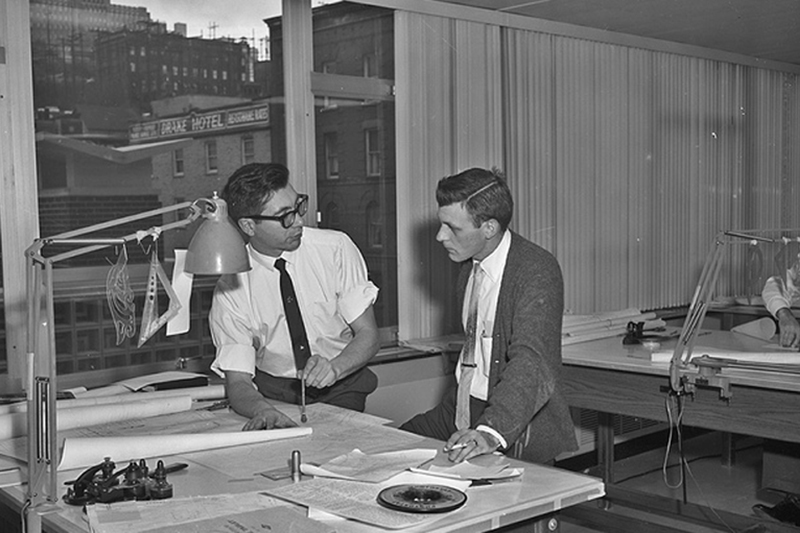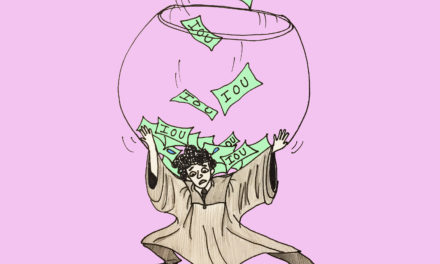
We are approaching the time of year in which people are applying to graduate schools and finalizing jobs or summer internship plans–many of which will involve business or law. These professions can be noble pursuits. Opening businesses benefits communities both economically and in morale. Likewise, serving as a public defender or judge as well as having knowledge in constitutional or civil rights law are worthwhile and honorable professions. Unfortunately, too much of our society depends on financial wheeling-and-dealing and excessive litigation.
In fact, this sort of work force is largely responsible for the Great Recession and high income inequality. Too much of the economy is based upon the ability for financial firms to gamble with people’s money. It also eliminates good-paying blue-collar jobs in the interest of financial benefit for the financiers.
This type of work when it receives a puzzling level of admiration even though it does not create much of anything other than a more drastic boom-and-bust economic cycle.
Certainly, there is a need for investment bankers to help bolster business, but as the events of 2008 taught us, ethical investment practices are often not what happens.
What is needed, however, for the new
economy is an increased emphasis on “STEM” jobs–science, technology, engineering and mathematics– and both teaching and
computer science also deserve a place on this list. These jobs add economic value and confidence to our country, or any country for that matter.
These jobs are needed to address deficiencies in some of the nation’s most pressing issues like lower global rankings in education, a decline in good-paying manufacturing jobs, unemployment and a deteriorating infrastructure.
And for those who do not have plans of attending a four-year college, there is still much that needs to be done.
As the Wheel noted last week in its Staff Editorial, community colleges play an invaluable role in job training and upward mobility. American society has lost much of its practical skill and all too often the option for high school graduates is either college or working a low-skill, low-wage job.
The lack of a well-trained blue-collar workforce is essentially what economic inequality boils down to, and as it has been said many times before, when you lose the ability for someone to work hard and get a good-paying job, you lose a country.
Skilled workers like plumbers, electricians, mechanics, while not necessarily possessing the formal education of someone with a degree from a four-year college, play a crucial role in society and in many ways, contribute more value than financial speculators.
The challenge for the new economy is twofold. In many cases, there is a shortage of supply rather than demand for engineering jobs and it is the role of the education system to produce more qualified engineers. On the other hand, we need more people with higher education not to go to Wall Street, but to develop new technology and subsequently, a greater demand for more high-skilled, middle-class jobs.
The decline of manufacturing jobs in the mid- and late-1970s coincided with much of the market moving toward speculation and not producing anything. Former president Jimmy Carter characterized this decline: “The threat is nearly invisible in ordinary ways. It is a crisis of confidence. It is a crisis that strikes at the very heart and soul and spirit of our national will.”
Giving people more of a stake in the course of this country leads to a more stable economy, more economic equality and a greater sense of shared purpose among the citizens of this nation.
As Bob Dylan said in the Chrysler advertisement during the Super Bowl, manufacturing cars is part of what
makes America, well, America. And it isn’t limited to cars–it’s about creating something that had never been done before and being the best at it.
For those who plan to pursue jobs and internships in the financial sector or in law, I urge you to ask what such a contribution to society this would offer. It is easy to understand the personal financial benefits, but this is not what the economy needs.
The real questions we need to ask ourselves are, “What connection do I have with my work?” and “How does my career choice impact other people?”
Online Editor Ross Fogg is a College senior from Fayetteville, Ga.
Photo courtesy of Flickr Creative Commons
The Emory Wheel was founded in 1919 and is currently the only independent, student-run newspaper of Emory University. The Wheel publishes weekly on Wednesdays during the academic year, except during University holidays and scheduled publication intermissions.
The Wheel is financially and editorially independent from the University. All of its content is generated by the Wheel’s more than 100 student staff members and contributing writers, and its printing costs are covered by profits from self-generated advertising sales.




